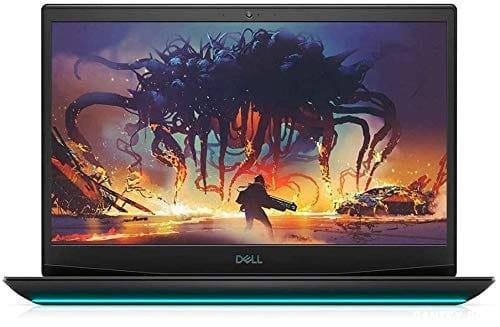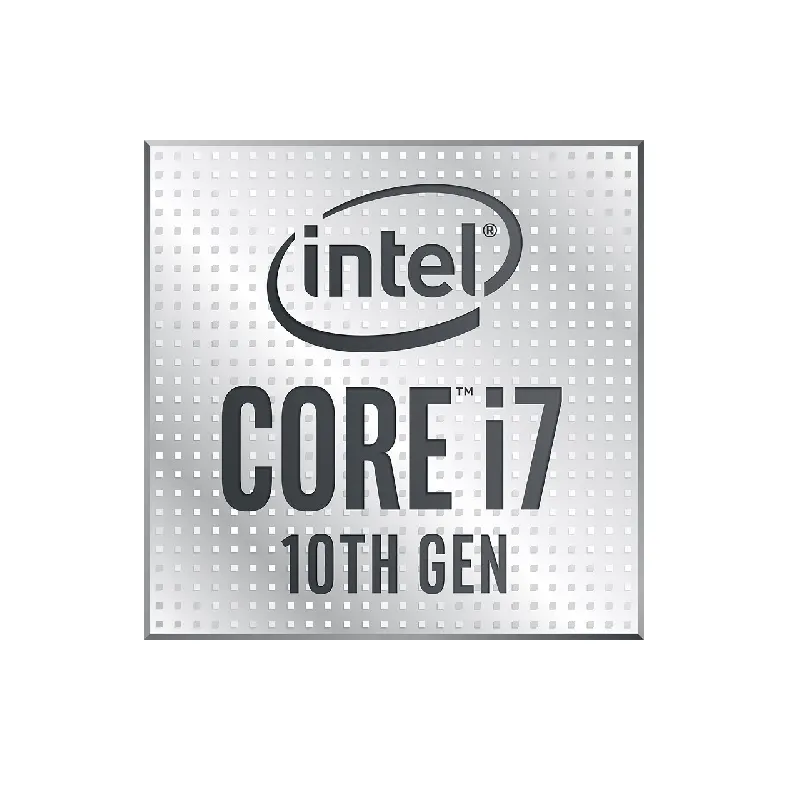Dell Precision 7550 Review: A Mobile Workstation Built for Power Users
Dell Precision 7550, Core i7-10850H, 16GB DDR4, 256GB SSD, Quadro T2000, 15" FHD. Perfect for creators, 3D graphics, high-end business and CAD tasks.

Introduction
The Dell Precision 7550 is a workstation-class laptop engineered for professionals who need uncompromising performance on the go. Unlike consumer notebooks, which focus on portability and style, the Precision 7550 is designed for industries where computing power, reliability, and expandability are non-negotiable. Engineers, designers, video editors, and data scientists rely on such machines for demanding tasks that standard laptops cannot manage.
With its robust build, enterprise-grade reliability, and powerful hardware, the Dell Precision 7550 remains a serious contender even in 2025, especially in the refurbished market. While it is heavier than typical business laptops, it offers unmatched versatility and performance for users who prioritise capability over sleekness.
Specifications Overview
| Feature | Dell Precision 7550 |
|---|---|
| Processor | Intel Core i7-10850H (10th Gen), optional Xeon CPUs |
| Cores | 6 (i7) or up to 8 (Xeon) |
| RAM | 16 GB DDR4 (expandable up to 128 GB) |
| Storage | 256 GB PCIe NVMe SSD (expandable with multiple M.2 slots) |
| GPU | NVIDIA Quadro T2000 (4 GB), higher Quadro GPUs optional |
| Display | 15.6" Full HD (1920x1080), optional UHD/4K panels |
| Refresh Rate | 60 Hz |
| Weight | ~2.0 kg |
| Dimensions | 39.6 x 26.36 x 2.86 cm |
| Ports | USB-A, USB-C, Thunderbolt 3, HDMI, VGA, SD Card, Ethernet |
This high level of configurability makes the Precision 7550 adaptable to a wide range of professional requirements, from CAD to video rendering.
Design and Build Quality
The Precision 7550 immediately communicates its purpose. It is large, solid, and functional, with durability taking priority over slim aesthetics. Built with reinforced materials and designed to meet military-grade standards, it can withstand heavy workloads and challenging environments.
Its thickness and weight of around 2.0 kg may seem excessive compared to ultrabooks, but this chassis allows for advanced cooling systems and user-friendly upgrade paths. The bottom panel can be removed easily, giving access to RAM slots, multiple storage bays, and other components. This makes servicing and upgrading straightforward, extending the machine’s lifespan significantly.
The hinges are sturdy, and the lid protects the display with minimal flex. While not the most stylish device, the Precision 7550 prioritises functionality and longevity, both essential qualities for professional use.
Performance and Professional Workloads
Performance is the core reason to choose the Precision 7550. Powered by Intel’s 10th Gen i7 CPUs or optional Xeon processors, paired with NVIDIA Quadro GPUs, it can run demanding workloads with ease. Unlike consumer graphics cards, Quadro GPUs are optimised and certified for professional applications like AutoCAD, SolidWorks, Revit, and Adobe Premiere.

Real-world tasks where the Precision 7550 excels include:
- Complex 3D modelling and rendering
- Scientific simulations and data analysis
- Video production and editing with large file sizes
- Running multiple external monitors and workstations
- Virtualisation and software testing environments
One of the advantages of this workstation is sustained performance. Thanks to effective cooling, it can handle prolonged stress without the severe throttling common in thinner laptops. This makes it suitable for professionals who need consistent output over long sessions.
Display and Visual Experience
The standard 15.6-inch Full HD display is sharp and reliable, but higher-end models offer UHD/4K panels with greater brightness and colour accuracy. These options are valuable for video editors, designers, and content creators who depend on precise visuals.
Colour reproduction is solid, though professional users working in colour-critical environments may still benefit from calibration tools. Viewing angles are wide, making it easy to collaborate or present designs. The 7550 also supports multiple external displays, enhancing multitasking and productivity for those working in complex projects.
Cooling and Acoustics
Cooling is critical in a workstation of this scale. The Dell Precision 7550 uses a dual-fan system that effectively manages heat during heavy workloads. While the fans do become noticeable under sustained load, the trade-off is that performance remains consistent.
Heat is directed away from the keyboard and palm rest areas, ensuring the device remains comfortable during use. For professional workloads that push both CPU and GPU to their limits, fan noise is expected, but Dell’s design strikes a good balance between cooling efficiency and usability.
Connectivity and Ports
The Precision 7550 provides a wide selection of ports, reflecting its role as a professional workstation. These include:
- USB-A ports for legacy peripherals
- USB-C with Thunderbolt 3 for high-speed data and external GPUs
- HDMI and VGA for display connectivity
- SD card reader for media professionals
- Ethernet port for reliable wired networking
This variety ensures compatibility with both modern and legacy devices. For professionals working in offices or studios, this reduces the need for dongles and hubs, making the workstation easier to integrate into complex setups.
Battery Life and Mobility
Battery life is not the main strength of the Precision 7550. With a standard configuration, users can expect around 4 to 6 hours under light workloads, but demanding tasks will reduce this significantly. Large battery options can extend endurance, but this device is best viewed as a portable workstation rather than a travel-friendly ultrabook.
At around 2.0 kg, it is portable enough to move between locations but not designed for constant mobility. The included power adapter is also substantial, reinforcing that this machine is built for performance first.
Security and Reliability
The Precision 7550 incorporates enterprise-grade security features such as TPM modules, fingerprint readers, and optional smart card readers. BIOS-level protections ensure integrity, making it suitable for organisations with strict IT policies.
In terms of reliability, the workstation is built for longevity and consistent performance. With easy upgradability, robust cooling, and durable materials, it is designed to serve as a long-term investment for businesses and individuals alike.
Why the Dell Precision 7550 Still Matters in 2025
Even in 2025, the Precision 7550 remains relevant for several reasons:
- Performance: It delivers workstation-level power that rivals many modern laptops.
- Expandability: With multiple storage and RAM slots, it offers far greater upgrade potential than most ultrabooks.
- Reliability: Enterprise durability ensures a longer usable lifespan.
- Value: As refurbished models, it offers workstation-class power at a fraction of the cost of new models.
For professionals who need a serious computing device without paying the premium for the latest generation, the Precision 7550 represents excellent value.
Comparison with Alternatives
| Feature | Dell Precision 7550 | HP EliteBook 840 G6 | Dell Latitude 7390 | Lenovo ThinkPad T14 Gen 5 |
|---|---|---|---|---|
| CPU | Intel i7-10850H (6 cores) / Xeon | Intel i7-8650U (4 cores) | Intel i7-8550U (4 cores) | Intel Ultra 5 125U |
| GPU | NVIDIA Quadro T2000 (4 GB) | Intel UHD 620 | Intel Integrated | Intel Arc Graphics |
| RAM | 16 GB DDR4, expandable to 128 GB | 8 GB DDR4 | 16 GB DDR4 | 32 GB DDR5 |
| Storage | Multiple M.2 slots, expandable | 256 GB NVMe SSD | 512 GB NVMe SSD | 512 GB NVMe SSD |
| Display | 15.6" FHD / optional 4K | 14" FHD | 13.3" FHD | 14" 2.8K 120 Hz |
| Weight | ~2.0 kg | 1.35 kg | 1.35 kg | 1.31 kg |
| Use Case | Workstation workloads | Business productivity | Lightweight business tasks | Balanced business + performance |
Analysis
- The Precision 7550 dominates in raw performance and graphics capability, making it the clear choice for CAD, rendering, and scientific computing.
- The EliteBook 840 G6 and Latitude 7390 prioritise portability and office tasks but cannot compete in performance.
- The ThinkPad T14 Gen 5 offers a modern balance of portability and power, but it still lacks the dedicated GPU strength and expandability of the Precision 7550.
For professionals who need power, the Precision 7550 stands out, while others are better for mobility and everyday office use.
Pros and Cons
Pros
- Exceptional workstation performance
- Professional GPU with ISV certifications
- Multiple upgrade paths for storage and RAM
- Durable and reliable build quality
- Comprehensive port selection
Cons
- Heavier and bulkier than typical laptops
- Battery life is limited under heavy workloads
- Noticeable fan noise during stress
- Premium pricing, even as refurbished
Value in the Refurbished Market
Buying a refurbished Dell Precision 7550 in 2025 provides access to workstation-level performance at a fraction of its original price. Professionals who do not require the latest generation of CPUs and GPUs can benefit from robust performance, expandability, and reliability without overspending. Many refurbished models come with warranty coverage, further ensuring peace of mind.
Conclusion
The Dell Precision 7550 remains one of the most capable mobile workstations available, even several years after its release. With powerful CPUs, dedicated Quadro graphics, and unmatched expandability, it continues to serve as a reliable tool for engineers, designers, and creators.
While not built for casual users or frequent travellers, it is a perfect solution for professionals who demand consistent power and enterprise-grade reliability. As refurbished models become more affordable, the Precision 7550 offers one of the strongest value propositions in the professional laptop market.
FAQs
Q: Is the Dell Precision 7550 suitable for gaming?
A: While it can handle some games due to its powerful GPU, it is optimised for professional workloads, not gaming performance.
Q: How much RAM can the Precision 7550 support?
A: It supports up to 128 GB of DDR4 RAM across multiple slots.
Q: Can the storage be upgraded?
A: Yes, the laptop supports multiple M.2 slots, allowing users to expand storage significantly.
Q: What is the average battery life?
A: Expect 4 to 6 hours under light use, but heavy workloads will reduce this considerably.
Q: Is the Dell Precision 7550 still worth buying in 2025?
A: Absolutely, for professionals who need workstation performance at a lower cost, especially when purchased refurbished.

